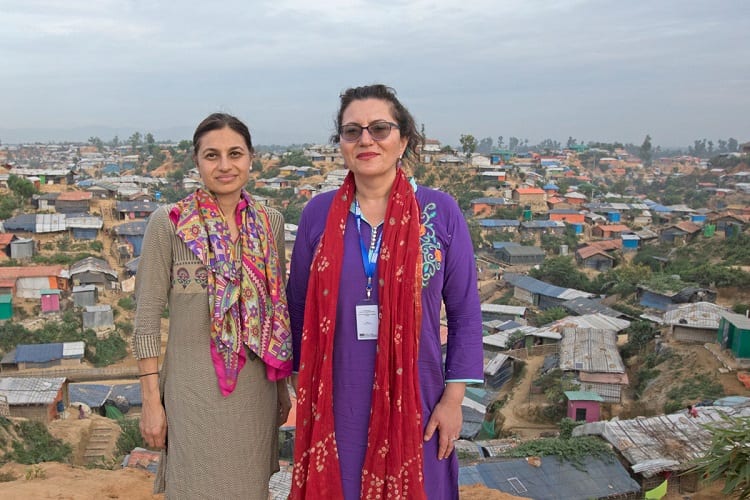COX’S BAZAR DISTRICT, Bangladesh — A 12-year-old Rohingya boy flatly, stoically tells of how, within three hours one day in August 2017, the Myanmar military murdered 56 members of his family in their village in western Myanmar. Of his immediate family, his parents and three sisters were slain; only he and his brothers — ages 27, 25 and 10 — survived.
A mother weeps as she describes how she and her 10-year-old daughter escaped to Bangladesh after their heads were sliced open with machetes, the woman was raped and their home set ablaze. Her husband and their three other children, ages 4, 2 and 1, were killed — the baby, as she held him.
A middle-aged man with torturous memories rants unintelligibly about the soldiers who raided his village. He frantically acts out the violence he witnessed, firing a gun no one else can see, but that he can’t stop seeing.
What happened in Myanmar to these and thousands of other Rohingya refugees, and how their experiences and losses forever changed their lives, are the reasons Rupa Patel, MD, and Anne Glowinski, MD, travel to the refugee camps in southeastern Bangladesh. While numerous aid organizations focus on the refugees’ basic needs, Patel and Glowinski, colleagues at Washington University School of Medicine in St. Louis, have zeroed in on another crisis: the profound need for mental health care, and the dearth of people and means to provide it.
